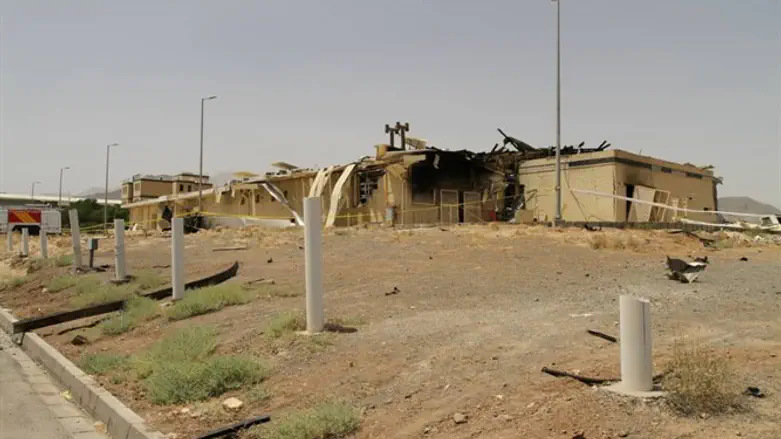
An Israeli attack on the Iranian nuclear program is technically feasible, and could help Israel gain time, but will not completely solve the problem, former International Atomic Energy Agency Deputy Director and senior Stimson Center researcher Dr. Olli Heinonen told Israel Hayom in an interview.
The Islamic Republic's nuclear program is well known to Dr. Heinonen, 75, who has spent entire days in the subterranean Iranian nuclear program when it was only in its infancy, and later after it expanded and developed.
He has held numerous positions at the International Atomic Energy Agency (IAEA), and has climbed to the No. 2 position in the organization, where he was in charge of nuclear oversight worldwide.
When asked exactly how many times he was in Iran he admits: "I lost count. A good many times, maybe 25. I was there for years, sometimes five or six times a year, but I never counted."
The dimension of time is critical here, because it makes possible to understand, first of all, the extent of the technological development that the regime in Tehran has undergone and its gallop towards nuclear weapon capability. Dr. Heinonen has been following this process since its inception, sometime in the mid-1980s during the Iran-Iraq War.
"From the beginning, I felt very uncomfortable about some aspects of the program," Heinonen admits, "But we already knew about it a few years before I left. We had good times and hard times, ups and downs."
To illustrate the last sentence, Heinonen recalls an anecdote from a visit to the nuclear facility in the city of Arak, an industrial area in central Iran. "We knew about Arak in 2002, and it had many unconventional aspects," he says.
During one of his visits to the place he found himself asking the Iranians about 1,600 new centrifuges on the site, that were "still wrapped in the plastic."
"We never tried them," replied one Iranian expert - one example of the confusing and contradictory discourse that has been going on for years between the Islamic Republic and the West.
The conversation with the former Atomic Energy Agency Chairman takes an interesting turn when asked about the possibility of an Israeli military attack on Iran, with the aim of destroying the nuclear program.
"Technically, such an attack is possible, although some sites will be more difficult to attack than others," he explains. "But this whole thing starts with one thing: You need to know what you're bombing, because if you don't know, you're in serious trouble. It's easy to say 'we need to bomb Natanz, Fordo.' Maybe there are more enrichment sites. We need to know the status of those sites."
"A bombing can help gain time, but it doesn't eliminate the problem. It should be remembered that Iran is not Syria or Iraq: it always has a backup plan. The Iranians don't put all their eggs in one basket, and I'm sure they've taken steps to keep parts of the plan running in case of assault," he concludes.
He chooses to end the interview with advice for the new US administration, with an emphasis on incoming President Joe Biden, regarding a new nuclear deal with Iran. "Don't rush," says Heinonen, "build an international regional coalition."
